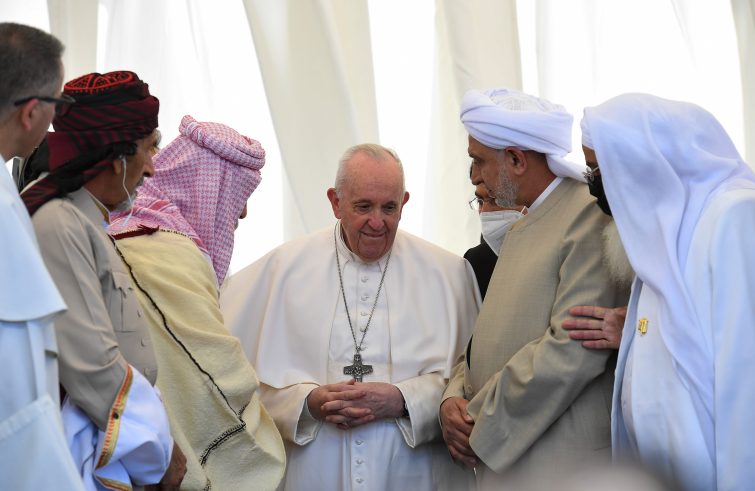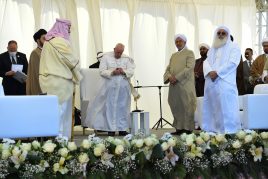
The meeting between Pope Francis and Grand Ayatollah al-Sistani is the fruit of “many years of exchanges between Najaf and the Vatican. And while at the moment no joint document is in sight, a promise has been made: “We plan to pay a visit to the Vatican soon to ensure the continuation development and progress of this dialogue”, declared Dr. Sayyed Jawad Mohammed Taqi Al-Sistani, Secretary-General of the Al-Khoei Institute in Najaf, a leading representative of Iraqi Shi’a Muslims in Iraq. He was born in December 1980 in Najaf into the family of Ayatollah Imam Sayyed Abul-Qasim Al-Khoei. He is co-founder of the Iraqi Council for Inter-religious Dialogue and chairs the Al-Khoei Institute that forms part of the Hawza in Najaf, a religious seminary founded 1,000 years ago for Shiite Muslim scholars that combines classical Islamic studies with a special focus on legal studies, inter-religious dialogue and peace projects. We asked him for an overview of Pope Francis’ historic visit to Iraq, with a view to the future.
 What is the significance of Pope Francis’ meeting with Grand Ayatollah al-Sistani from your perspective?
What is the significance of Pope Francis’ meeting with Grand Ayatollah al-Sistani from your perspective?
While this was the first meeting in history between the spiritual leader of Shi’a Muslims and the head of the Catholic Church, this visit is the fruit of many years of exchanges between Najaf and the Vatican, bound to strengthen our inter-religious relations. It was also a historic moment for Iraq.
A statement from your Office said that the Pope and the Grand Ayotollah addressed the most important challenges facing humanity. What is important to Al-Sistani today? What is his view on co-operation between people of different faiths?
Ayatollah Sistani believes that religious leaders should step up their efforts to promote social cohesion in societies worldwide and reject the rhetoric of war.
By cooperating with people of different faiths, we, as religious leaders, are also sending out a strong message on the importance of tolerance and dialogue to our respective communities.
 How will the relations between the Pope and the Grand Ayatollah, and between Najaf and the Vatican, advance from here on?
How will the relations between the Pope and the Grand Ayatollah, and between Najaf and the Vatican, advance from here on?
We must continue strengthening our relations, both as institutions and individuals. We will be visiting the Vatican soon with the aim of ensuring the continuation and progress of this dialogue. The world is confronted with shared challenges, and these challenges cannot be solved by no single State, institution or individual, alone without the coordination and cooperation of everyone throughout the world.
Do you believe that a joint document, like the one signed two years ago in Abu Dhabi, will eventually be drawn up?
I don’t think we will see the signing of a joint document, but it must be said that the message of Ayatollah Sistani is very much in harmony with the spirit and ethics of human fraternity which is at the heart of this inter-religious initiative.
What is the message that Pope Francis will be leaving to the Iraqi people and to the entire region of the Middle East?
 If some years ago I had told someone that the Pope would visit Iraq and travel to six different cities from the North to the South of the country, I would have been laughed at. His visit has been meaningful for us all, not only for Christians.
If some years ago I had told someone that the Pope would visit Iraq and travel to six different cities from the North to the South of the country, I would have been laughed at. His visit has been meaningful for us all, not only for Christians.
The message that Pope Francis is leaving behind for Iraq is that we must continue working together, hand in hand, to reject violence and hatred and embrace each other as human beings.












